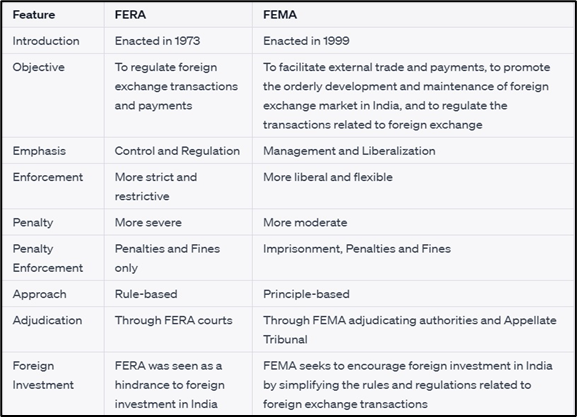Why in news?
- The Enforcement Directorate (ED) has registered a case against the British Broadcasting Corporation (BBC) India under the Foreign Exchange Management Act (FEMA) for alleged foreign exchange violation.
- BBC is the national broadcaster of the United Kingdom, based at Broadcasting House in London.
- The probe is essentially looking at purported foreign direct investment (FDI) violations by the company.
What’s in today’s article?
- Foreign Exchange Management Act (FEMA)
Foreign Exchange Management Act (FEMA)
- About
- FEMA came in 1999 as a successor to the Foreign Exchange Regulation Act or FERA of 1973, with changing economic conditions in a post-liberalisation India.
- The act seeks to regulate foreign exchange transactions, currency transactions, and foreign payments in order to promote orderly development and maintenance of the foreign exchange market in India.
- Objective
- The objective of FEMA is:
- to facilitate external trade and payments,
- to promote the orderly development and maintenance of foreign exchange market in India, and
- to regulate the transactions related to foreign exchange.
- Functions
- The FEMA regulates various aspects of foreign exchange transactions, including acquisition and holding of foreign exchange, payment and settlement of foreign exchange transactions, export and import of currency, and other related activities.
- The act also empowers the RBI to make rules and regulations to carry out the provisions of the act. Violation of the provisions of FEMA can result in penalties and fines.
What was Foreign Exchange Regulation Act or FERA?
- Background
- FERA was designed for an era in India marked by a shortage of foreign exchange.
- It was aimed at conserving forex to ensure it was utilised only in the interest of the development of the country.
- About
- FERA came into effect in 1973 and was aimed at regulating foreign exchange transactions and payments in the country.
- The act provided the Indian government with extensive powers to regulate foreign exchange transactions.
- This included the power to impose restrictions on the use of foreign exchange, to regulate the flow of foreign exchange, and to prohibit transactions that were deemed to be against the national interest.
What is the difference between FEMA and FERA?

- Overall, FEMA is a more modern and liberalized law compared to FERA, which was considered to be more restrictive and focused on control and regulation.
- FEMA seeks to promote foreign investment in India by simplifying the rules and regulations related to foreign exchange transactions, while FERA was seen as a hindrance to foreign investment in India.










